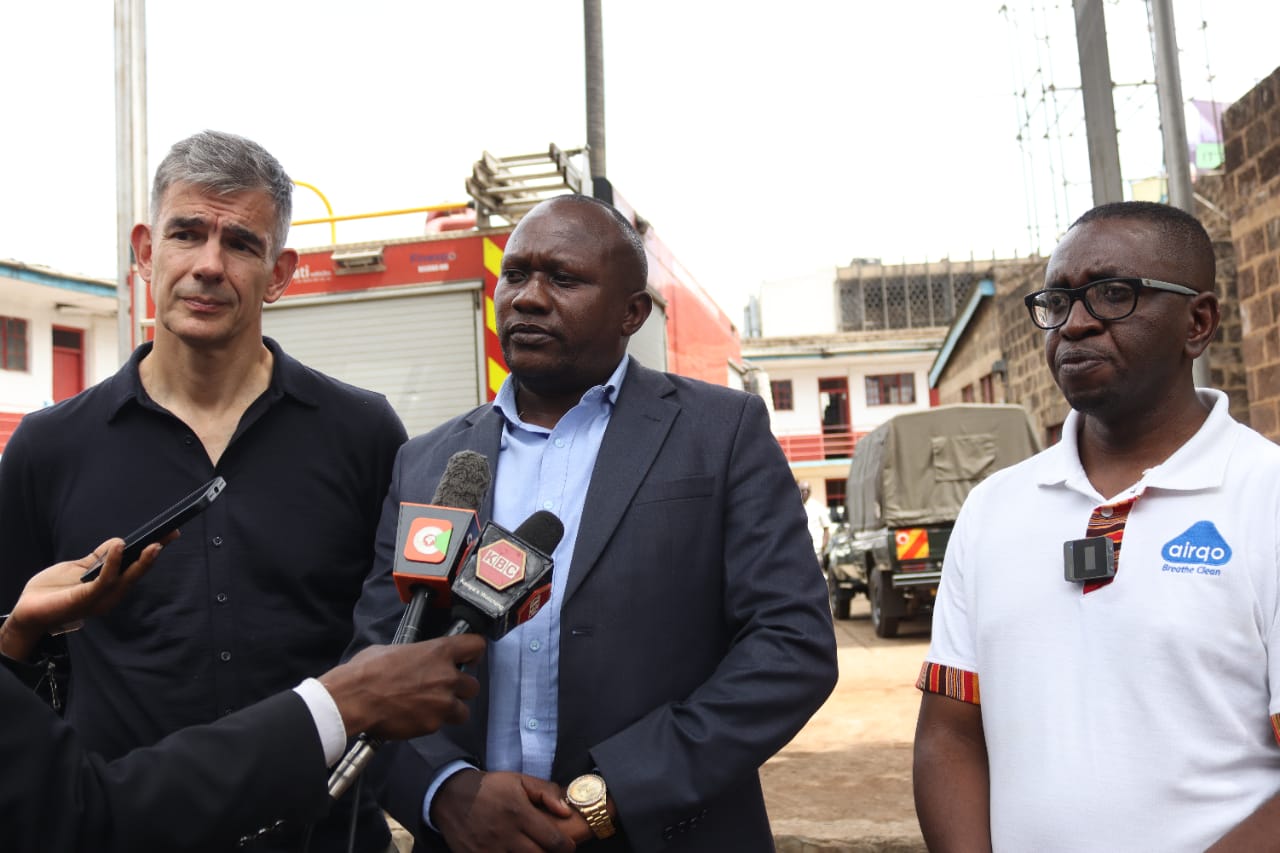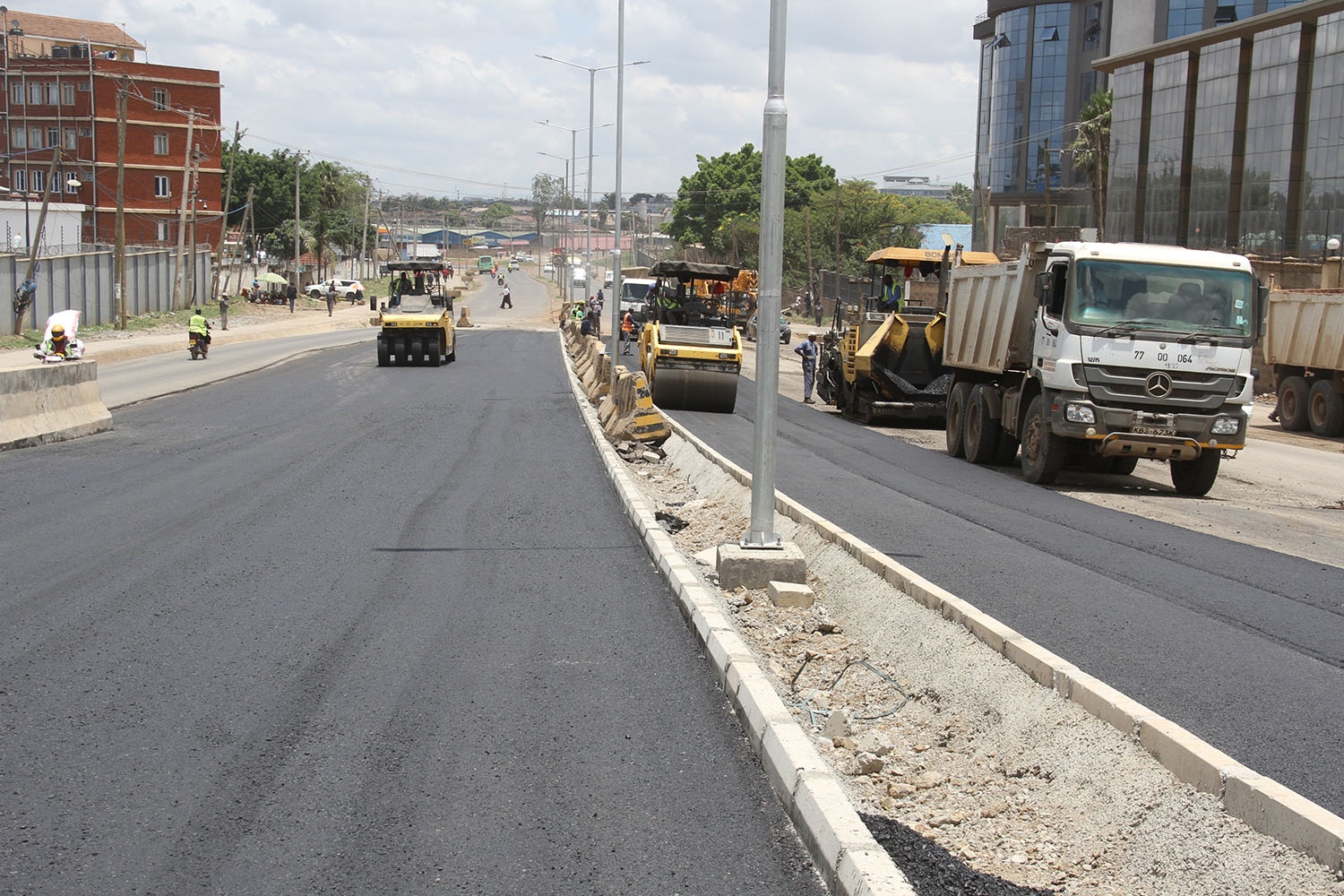
Google has launched an initiative aimed at
improving public health and digital skills across Africa, particularly focusing
on air quality monitoring in Nairobi.
In an announcement on October 28, 2024, Matt Brittin, President of Google in Africa, the Middle East, and Europe outlined a multi-faceted approach that combines technological innovation with community engagement and education.
At the heart of this initiative is the collaboration with Airqo, which focuses on air quality monitoring in Nairobi.
Utilising solar-powered devices, this project employs a network of sensors strategically placed throughout the city to collect real-time data on air pollutants.
“This information is invaluable, providing citizens with insights to make informed decisions about their outdoor activities and health,” Brittin said.
“The data collected will also be vital for urban planners and local governments."
He continued to say that by identifying pollution hotspots and traffic congestion areas, city officials can make better decisions regarding infrastructure improvements, public health measures, and environmental regulations.
“This data-driven approach aims to enhance urban planning, ultimately contributing to a healthier living environment for Nairobi's residents,” Brittin said
Moreover, Brittin said a $1.1 million grant was provided to kickstart the project in Uganda and Kenya, with plans for expansion into additional African cities.
A key highlight of Brittin's announcement was the introduction of 15 new languages tailored for African users.
This initiative aims to enhance accessibility to digital resources and training programs, particularly in the realms of artificial intelligence (AI) and cybersecurity.
“The goal is to equip millions of Africans with the digital skills necessary to thrive in an increasingly tech-driven world," Brittin said.
“Google has already trained over 14 million individuals in various digital competencies, and this new push is set to build on that foundation, ensuring that diverse communities across the continent can participate in the digital economy.”

Brittin also announced a $5.8 million grant to focus on training Africans in AI and cybersecurity.
“This funding will not only support the development of air quality monitoring infrastructure but also facilitate education and capacity-building efforts throughout the continent,” he said.
The Director for Climate Change and Air Quality Monitoring in Nairobi County, Maurice Kavai, gave brief remarks at the event.
“The project currently includes seven air quality sensors installed across Nairobi, with plans to expand the network to cover up to 200 sites,” he said
He also noted the expansion aims to provide comprehensive coverage of the city's air quality, allowing for more accurate assessments and timely alerts regarding pollution levels.
“As part of this effort, the project has already led to Nairobi's first budget line item dedicated to air quality, marking a significant policy shift,” Kavai said.
Airqo project lead Engineer Bainomugisha said a key aspect of the initiative is the use of AI to enhance data analysis capabilities.
“AI models are being employed to triangulate data, predict future air quality conditions and link these predictions with weather variables such as humidity and temperature,” he said.
Additionally, he said stakeholders will be more equipped to make informed decisions and anticipate environmental challenges, ultimately contributing to more proactive public health strategies.
“We plan to collaborate with NGOs like Jacaranda Health to integrate health initiatives with air quality monitoring, further highlighting the interconnectedness of environmental health and public welfare," Bainomugisha said
Deputy Regional Director at World Resources Institute Rebekah Shirley, who is also a stakeholder, noted the project faces several challenges.
“Coordinating among the various stakeholders can be
complex, as each entity has its own priorities and operational dynamics,”
Shirley said
Moreover, she added that the slow pace of implementing solutions poses a significant hurdle.
To address these issues, the initiative is exploring public-private partnership (PPP) arrangements that could facilitate more efficient waste management practices and reduce pollution from waste burning.









![[PHOTOS] Baba has left us orphans - Kisumu residents mourn Raila](/_next/image?url=https%3A%2F%2Fcdn.radioafrica.digital%2Fimage%2F2025%2F10%2F910325a1-f207-4932-b9bb-eae6f91fdead.jpg&w=3840&q=100)


